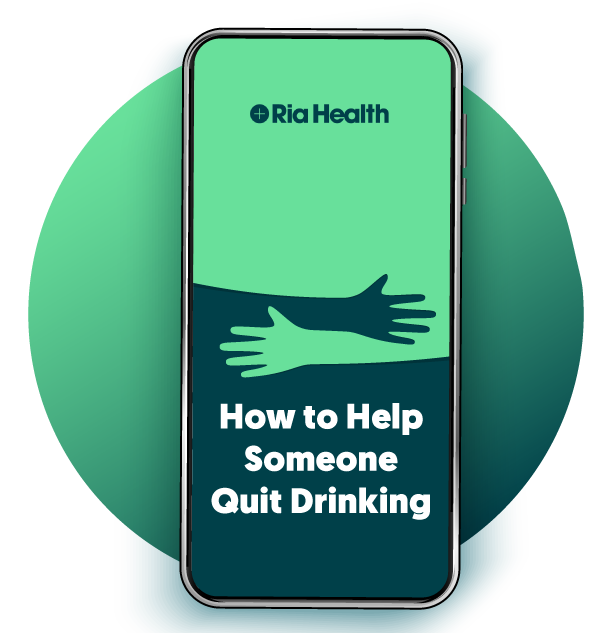What To Do If Your Child Is Drinking Too Much
Is your adult child ready to make a change in their relationship with alcohol? Get them comprehensive support, 100% online.
As a parent, you may be concerned if you notice that your son or daughter drinks too much alcohol. Maybe you’ve noticed some signs that your child is drinking too much or has a problematic relationship with drinking. Maybe you’re concerned that your child’s drinking has caused physical or emotional harm to themselves or their loved ones. Maybe you’ve just found yourself thinking “Is it normal for my daughter to drink so much?” or “I think my son is an alcoholic.”
Parents want the best for their children, but children can also sometimes be resistant to listening to critical feedback from their parents. As a parent, how can you help an alcoholic child?
Thankfully, there are some things you can do. If you’re concerned about your child’s drinking, we’ve outlined some steps that you can take to support them while also taking care of your own needs.
Concerned about a different family member? Check out our resources for loved ones.
Understanding Alcohol Use Disorder
Alcohol use disorder, or AUD, is a complex physical and mental health condition. Someone who has AUD has a hard time limiting or controlling their drinking. Researchers tend to view AUD as a brain disorder—it impacts how a person’s brain considers risks and rewards, which further contributes to their disease.
Because AUD is a condition that impacts the brain, treatment is much more complex than just going “cold turkey” or using willpower to push through. It can be impossible or even dangerous for someone with alcohol use disorder to “just stop” drinking.
What are some signs that your child might have AUD? Alcohol use disorder can only be diagnosed by a licensed doctor or mental health professional, but there are some key signs you can look out for:
- Prioritizing drinking over other responsibilities, like work, school, and family
- Drinking in secret or hiding their drinking
- Making excuses for drinking, such as drinking to help them sleep or relax
- Irritability and mood swings
- Blackouts or lapses in memory
- Social isolation
If you notice some of these signs of AUD in your child, it might be time to consider having a conversation with them about their drinking.

How To Talk To an Adolescent Child About Their Drinking
If you’ve ever wondered, “How can I help my son stop drinking?” or “What do I do if my daughter drinks too much alcohol?” having a conversation is a great place to start.
You might feel nervous or at a loss for what to say, especially when talking to an adolescent child. Those feelings are okay. Know that there isn’t one perfect or right thing that you can say to them. The most important thing is that you let your teen know that you’re there for them.
Show Empathy
Approach your child with empathy, love, and understanding. Coming from a place of wanting to control, punish, or scare your child is likely to make them feel shame and shut down. By showing empathy, you can make sure your adolescent child knows that you’re there for them and want to support them.
Offer Options
Your teen might know they have a drinking problem, but feel unsure about what to do. In talking to your child, offer them options, like offering to find them a therapist, rehab center, or other treatment options.
Set Boundaries
If your adolescent child lives with you, you can set boundaries around their alcohol use within your home. Importantly, boundaries must be focused on what you can do and what’s within your control. “You need to stop drinking” is not a boundary, but “If you come home drunk, I will revoke your driving privileges” is.
Use “I” Statements
Statements that start with “I” are powerful because they help us avoid placing blame on other people. Consider the difference between statements like “Your drinking is out of control. Why can’t you just stop?” and “I feel scared for your safety. I love you and I want you to be okay.”
Manage Your Own Emotions
As a parent, you probably have a lot of emotions wrapped up in your child’s drinking. You might feel anger, fear, frustration, sadness, shame, and blame. Know that these emotions might come up while having a conversation with your teen. Do what you need to do to manage these emotions, even if it means taking a break and stepping away from the conversation temporarily.

Download Our Free Guide
Download our guide on How to Help Someone Quit Drinking. Learn more about alcohol use disorder, communicating with a loved one, and the resources available to help.
How To Approach Your Adult Child About Alcohol Misuse
When your child is an adult, you might feel like you have less influence on them, but you can still talk to them about their drinking.
Use “I” Statements
As with an adolescent child, “I” statements are a great tool to use when talking to an adult child. Focus your statements on the impact that your child’s drinking behavior has on you.
Show Your Love
Make sure that your child knows how much you love and support them. Make explicit empathetic statements that show how much you care.
Offer Support
Just because your child is an adult, that doesn’t mean that they don’t need your help navigating recovery. Offer to find them a therapist, inpatient treatment center, or other options.
How To Cope With Having a Child Who Struggles With Alcohol
Having a family member who struggles with alcohol can put a strain on the whole family, but it can be especially challenging for parents. If you find yourself in this situation, it’s important that you don’t blame yourself. Your child’s drinking is not your fault.
It’s also important to make sure to put your own needs first. Parents are often taught to place their child’s needs above all else, but that doesn’t serve you. Your own needs have to be the priority. Set boundaries with your child as you need to, such as telling your child that if they are actively drinking, you won’t be able to spend time with them. Setting boundaries doesn’t make you a bad parent or a bad person.
Finally, get your own support. Find a support group for family members with AUD or connect to a therapist. Finding your own sources of support can help you cope and ensure that you’re taking good care of yourself.
Will insurance cover treatment? Verify Coverage
Have Questions? Call (800) 504-5360

